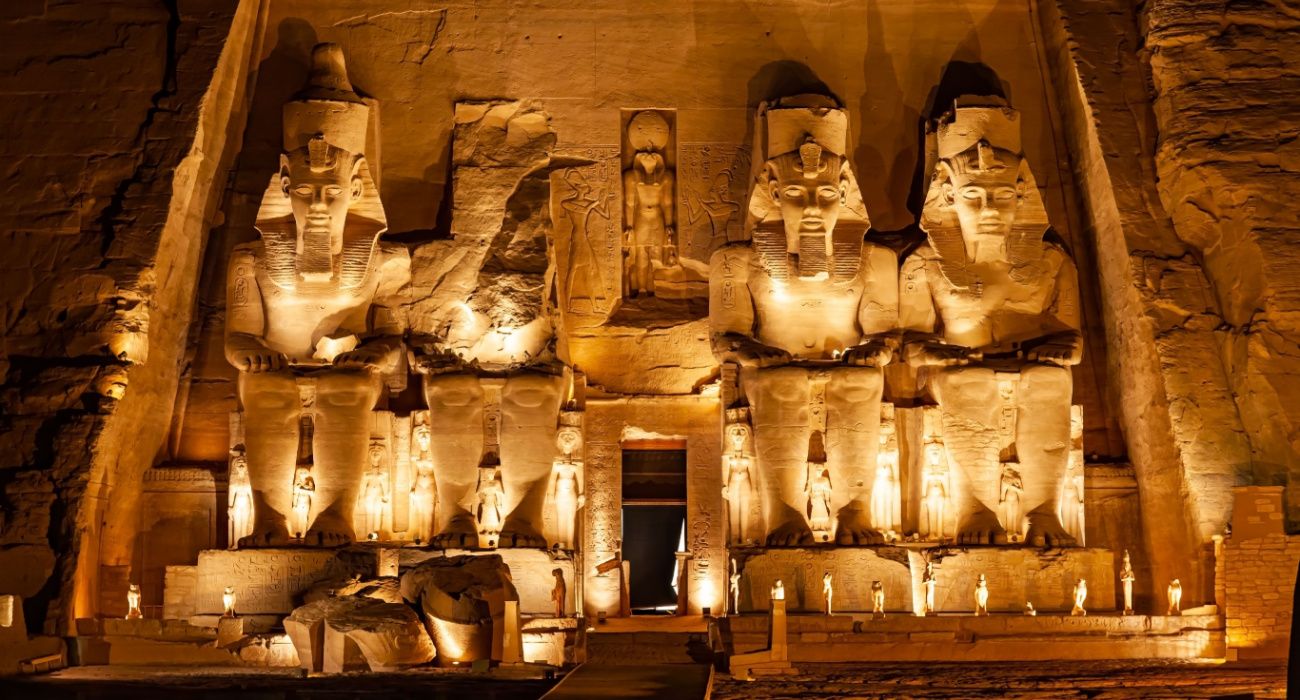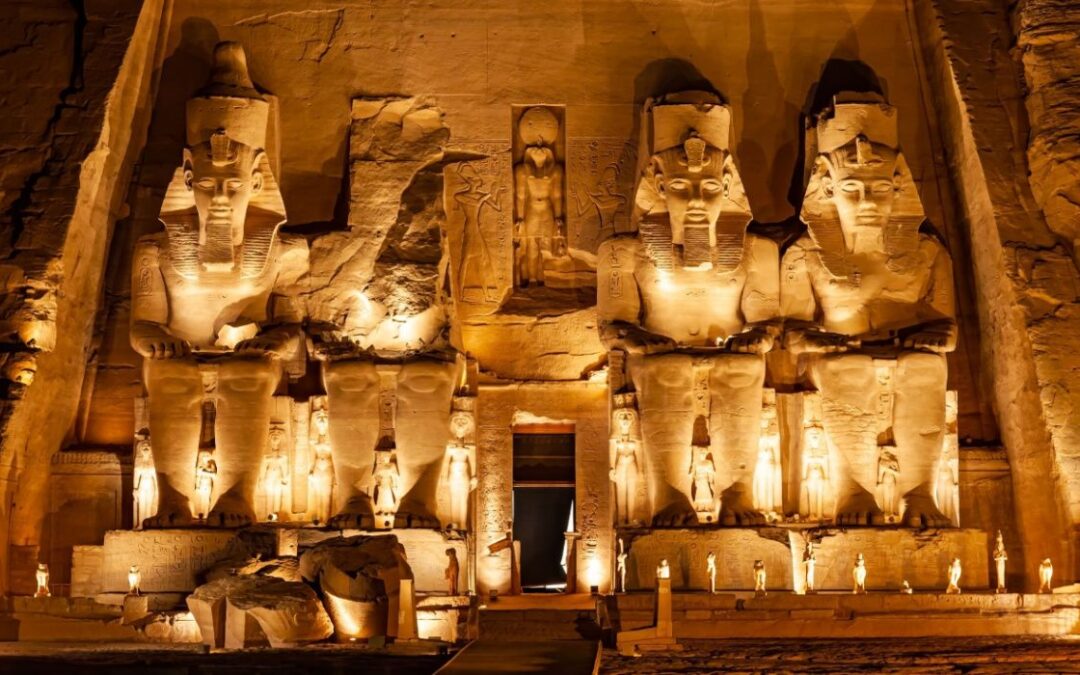
The desert in Egypt continues to be an archaeologist’s dream given all there may be nonetheless to be discovered, as confirmed by the most recent archaeological discoveries in the country. One such discovery was made when a 3,000-year-old fort found by archaeologists pointed to proof of a pharaoh’s presence.
On September fifth, the Egyptian Ministry of Tourism and Antiquities introduced a unprecedented discovering that was positioned within the desert via Facebook. Whereas archaeologists had been busy engaged on excavating Inform Al-Abqain, they positioned a fort by no means identified to have existed within the space. The discover, in and of itself, was essential given the historical past of what seemingly occurred there. Nevertheless, it was when objects from the fort had been being cataloged that archaeologists started to get excited.
Within the fort that was used in the course of the “New Kingdom Era of 1550 to 1070 BC on the Western War Road,” attention-grabbing objects equivalent to pottery and weapons used to struggle in battle, had been discovered in several rooms of the fort. However amongst these extra frequent objects was an merchandise of significance. That merchandise was a bronze sword with the engravings of the pharaoh, Ramesses II.
By discovering this lengthy sword, it’s proof that Ramesses II was not solely on the fort, however seemingly fought within the battles that happened within the space. Given how a lot was discovered within the fort, it factors to the truth that Ramesses II and his military of troopers had been profitable of their battles that not solely helped them to broaden their territory, however to struggle off those that wished to take Ramesses II’s territory. One such group was the Sea Peoples, who persistently brought on concern earlier than Ramesses II’s rule and into the start of his time as pharaoh till Ramesses II defeated them throughout his second 12 months as pharaoh.
Who Ramesses II The Pharaoh Was
Ramesses II was one of many longest ruling and most profitable pharaohs in Egyptian historical past
Ramesses II was one of many longest ruling pharaohs in Historic Egypt. His rule lasted from 1279 to 1213 BC, which was unparalleled for rulers throughout that point.
Ramesses II is best known for his battles in opposition to the Syrians, Hittites, and Libyans, in addition to signing the primary peace treaty in Egyptian historical past with the Hittities. His success has been seen all around the desert in Egypt with big statues of the pharaoh in quite a few locales, together with forgotten temples in Egypt, just like the Mountain Temple of Abu Simbel.
The ruler was stated to have had over 100 wives and 200 kids. Along with ensuring he had a lone lineage, Ramesses II wished to ensure he can be seen because the “biggest pharaoh in historical past.” This is the reason there have been so many locations constructed throughout Ramesses II’s reign, together with Hypostyle Corridor, the temples at Thebes and Abydos, and Ramesseum. Ramesses II even constructed a metropolis named after himself, Pi-Ramesses. That is the place the capital can be moved from its long-standing location in Thebes, which was not the primary capital with locations just like the ancient capital of Amarna, throughout Ramesses II’s time as pharaoh.
Whereas there isn’t a questioning how expert Ramesses II was as a navy thoughts, he was additionally a “propagandist”. As such, wars had been made to sound bigger than they had been and close to losses had been made to sound extra dramatic than they had been.
When Ramesses II died on the age of 90, he was buried within the Valley of the Kings. Nevertheless, Ramesses II was moved a number of occasions due to tomb robbers and was finally present in the Theban Necropolis, a far method from the riches he was as soon as buried with.
Notable Gadgets Situated In The Fort Alongside With Ramesses II’s Sword
Gadgets equivalent to a bronze ring, weapons for battle, and hygiene objects had been discovered within the fort
Along with the sword that bore Ramesses II’s identify, there have been a variety of other items that were located in the fort. A number of the objects embody:
- Scarab with “Amun – Lord of the Sky” engraved
- Scrab with “Ptah” engraved
- Bronze ring
- Necklaces formed like pomegranate blossoms
- Pottery used for storage
- Pottery ovens
- Instruments
- Weapons for battle
- Hygiene objects
- Ivory kohl applicators
- Protecting amulets
Maybe probably the most attention-grabbing factor that was discovered on the fort was the burial of a cow. This was seemingly performed, in line with archaeologists, as a result of cows had been “revered as celestial deities.” With the cow’s presence on the fort, the Egyptians believed they got “energy”, “abundance” and “prosperity”, all which might have been essential when in battle.
What Is Subsequent For The Fort Discovered In The Desert
It has not been disclosed what’s subsequent for the fort within the desert
Whereas archaeologists have already excavated and unearthed a lot of the fort, it isn’t clear how way more they should excavate, if something. It might be that this was a report given by the workforce after the fort was totally searched.
Nevertheless, this fort was found, in line with the Ministry of Tourism and Antiquities’ assertion, as a part of the “Inform Al-Abqain website within the Hosh Issa district of Beheira Governorate.” As such, with archeologists not figuring out that this fort existed, there may be nonetheless seemingly extra to find on the website itself. Given this thrilling discovery, who is aware of what else will flip up in what is popping out to be the dig of a lifetime.



Recent Comments